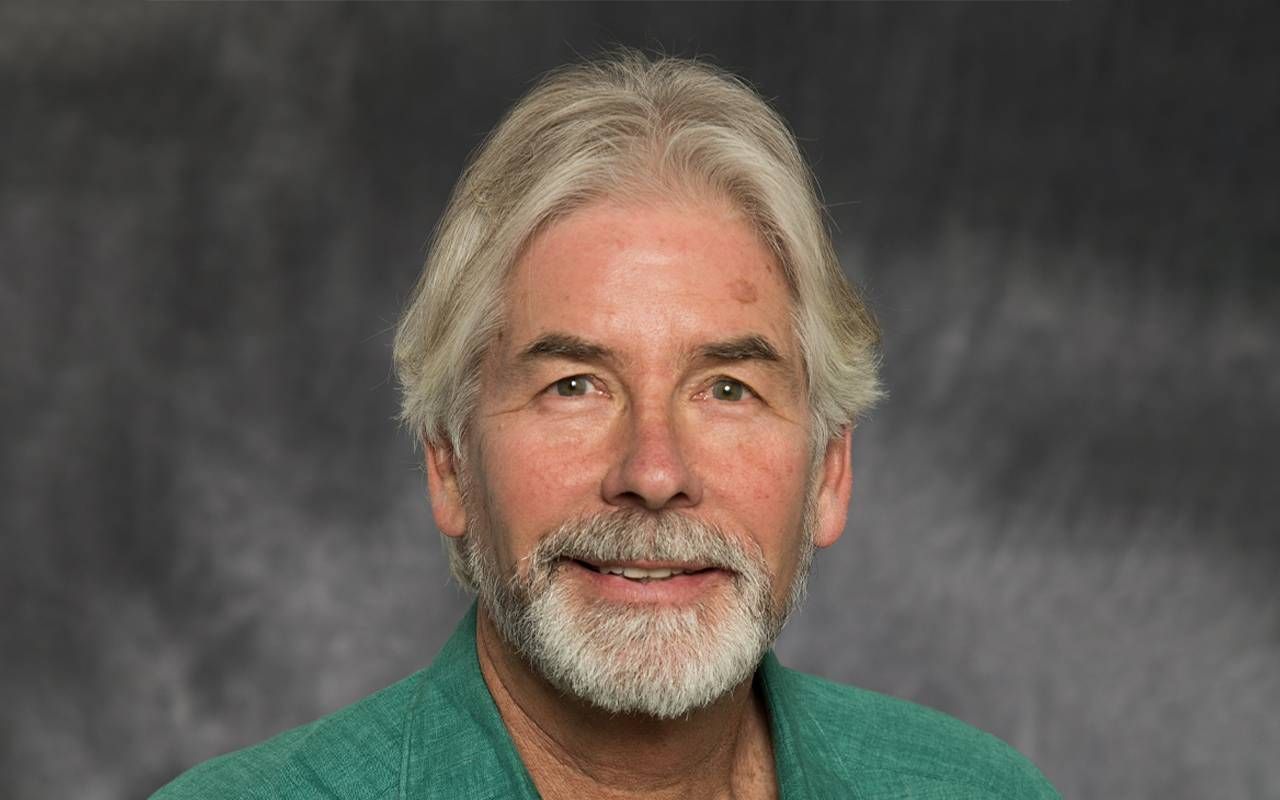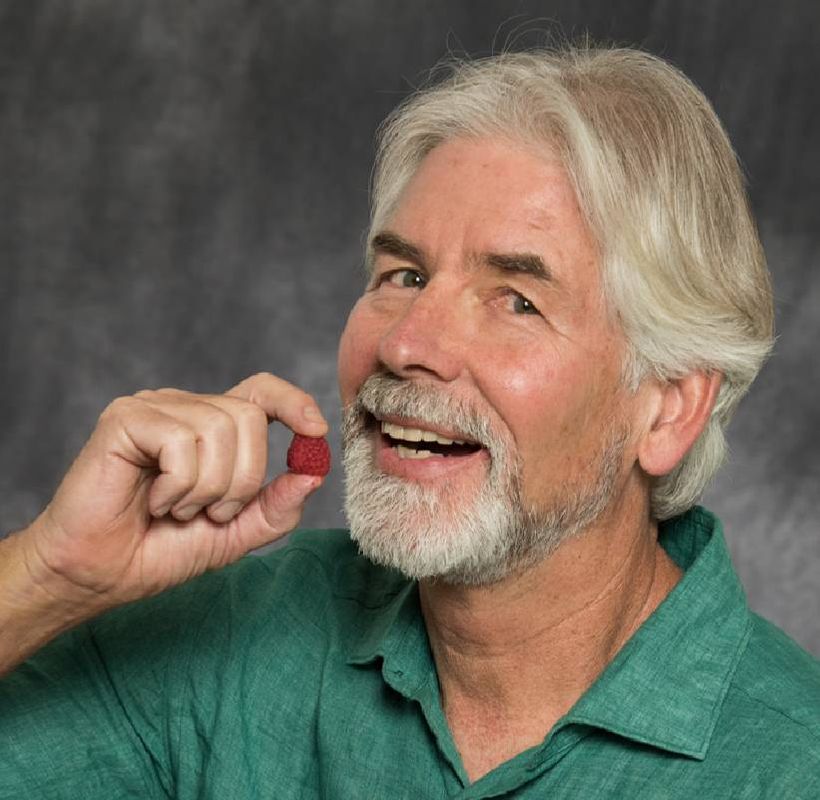Christopher Gardner: Celebrating Nutrition and Good Health
Behavioral shifts and seeing food as pleasurable are pivotal to healthy aging
Behavior is at the heart of fostering a thriving, sustainable way of living for our bodies to function capably throughout our lives. However, eating right, exercising more, sleeping better and leading a smoke-free lifestyle are paramount when it comes to aging well.

For Christopher Gardner, PhD., Stanford Medicine professor, researcher and human nutrition analyst, changing behavior, caring for our microbiome, and expanding our notion of healthy, enjoyable eating are some of the most potent steps we can take as a nation toward optimal well-being.
Although traditionally trained as a nutrition scientist (think fats, vitamins, minerals, carbohydrates and proteins), Gardner, 63, a Next Avenue 2022 Influencer in Aging, intersects culture, climate change and other non-health-related approaches to the health care toolbox to elevate the current scientific dialogue on human health, older populations and beyond.
But First, The Gut
By this point, mainstream perspectives on full-body wellness and gut health are ubiquitous. From dietary habits and exercise to genetic makeup and metabolic markers (e.g., blood sugar, cholesterol and blood pressure), myriad factors are understood to contribute to our body's ability to prevent disease, restore function, and boost immune resilience.
"Diet can be the most effective lever for maintaining the health and diversity of our digestive flora."
Nonetheless, one of the most significant pillars of our longevity and healthy aging is our gut health and how we care for its existing gut microbial environment. In short, the microbiome refers to the vast realm of tiny microorganisms, fungi, viruses and bacteria residing on and within us (skin, intestines, etc.), influencing our bodily functions from the moment we are born.
Undoubtedly, the microbiome, "especially in older populations where inflammation is an underlying cause of chronic degenerative disease," says Gardner, is and should be a relevant modern topic.
"We now have this window into health about these bugs. But wait, aren't bacteria harmful to us? We should take antibiotics. We should kill them all. Kill them all? No! There is a whole bunch of bacteria living symbiotically with them, with us, that we need," he adds. "And diet can be the most effective lever for maintaining the health and diversity of our digestive flora."
"We have been doing studies in humans, not mice, that show how important diet is to improve microbial diversity and lower inflammation. And what I like about this is behavior," says Gardner.
"Part of me has been sort of laughing because of this new hot topic — the microbiome. Oh, get your poop sampled or turn to precise nutrition. But, nevertheless, the real question is, what should we eat? Well, it is simple: more vegetables, more beans, less packaged and processed foods, and more seasonal, whole foods overall. That is what we have been saying for a long time."
Furthermore, "I learned in the last thirty years that everybody's response to behavior change is not the same. I can tell an individual that something, in particular, will improve their health and it could be motivating, but for another one, it might feel impervious. And here is where climate change comes in."
Nutrition Is Multidimensional
Many (if not all) of these health-salient topics are aligned and interrelated because food has to be available, sustainable, accessible and culturally appropriate. For Gardner, food has to be fun, too. "I will tell you what my profession did wrong to a large extent: we dissociated joy and pleasure from the act and ritual of eating," he says.

"If you ask most people these days if they want healthy versus good-tasting food, they assume these are dichotomous. But wait a second; good-tasting food can be healthy for you, too. Yet, in this country, we were told that if it tastes good, it will not be good for us, and that is simply not the case."
The study of previous generations shows that microbial diversity has been stunningly similar in people across the globe, yet very different from our modern Western diet population despite eating different foods, he explains.
"So it does not matter if you are north, south, east or west. You know that everything will fall into a vegetable, bean or grain to support a favorable microbial ecosystem," says Gardner.
Are Older Adults Living in a Way That's Too Sterilized?
There is no doubt that antibiotic overuse and long-range sterilization hinder our body's exposure to a natural environment. In addition, although crucial and required, Gardner thinks we have been overdoing hygienic practices throughout the years, a vital part to contemplate when considering gut health and healthy aging.
"Our ancestors did not have research papers and could still manage their personal ecosystems. Why? Because they followed the seasons, ate locally, and were whole-food based," he says.
So yes, we can all learn from generations worldwide who have lived health-forward, longevous lives by thinking of food as an all-encompassing experience of joy, culture and community. Straightforward but mighty nutrient-dense foods can pave the way for years to come, Gardner adds.
Back To Culture and Today's Older Populations
Gardner believes food used to play a more critical role in American culture before the advent of technology or overall distractions when people used to sit down to dinner together, eat slowly, share, and keep screens at bay.
"I feel sad for older populations who are lonely, too medicalized or deprived of good social interactions. Food, then, becomes less social and less joyful," he says.
Gardner asks, "Can we go back in time a little when food was simpler and we spent more time eating and cooking and there weren't so many ingredients? In the present, food has become convenient. The medical system has become convenient. Americans fear inconvenience and that needs to change."
A Behavioral Shift
"Do not make it inconvenient, but choose the most convenient path withouth really thinking it through," says Gardner.
In other words, think the opposite of living a sedentary, screen-forward life. Instead, try to get up and move, learn how to cook and invite others along the way. For older adults who might have the time and availability, this is a time to stop rushing. Enjoy the moments spent with family or loved ones.
"Learn to love the kitchen as much as to prioritize time with food," says Gardner. "There is no need to eat fast; rather, change your attitude and aim to eat slowly, stay nimble and appreciate food more as you age."
"You are responsible for yourself, for keeping your body healthy, active, and mobile. So I am very optimistic about older populations."
Gardener hopes older populations will find these behavioral shifts appealing for today and beyond. "You are responsible for yourself, for keeping your body healthy, active, and mobile. So I am very optimistic about older populations; I see greater recognition of these topics and one example is at hospitals."
"Hospital food is changing in the right direction," he adds. "For example, there is a group called Health Care Without Harm, a collaboration between several hospitals and their concern for healthy food in an environmentally responsible context. These and other initiatives exemplify a general change in the paradigm of using food as medicine and thinking from a nutritional perspective. People could get prescriptions for food."
Lastly, aside from a broader, collective attention to preventive medicine, Gardner feels hopeful for an evolution in our current health care system.
"The proportion of gross domestic product that goes to health care is alarming. And we cannot handle all the people in our hospitals. Something has to change. But we have now come around full circle to health behaviors. Things like food and nutrition are leading the way, and I am excited about that!"


